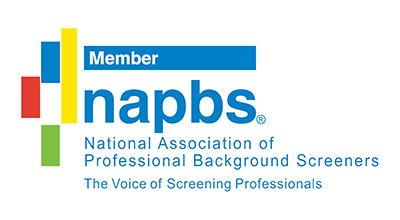2015 NAPBS conference stresses compliance
- 10/7/2015
- Kevin Rosenquist
September represents a great time of year. The start of
fall, the return of football, and the annual conference for the National
Association of Professional Background Screeners. But, of course, everyone
knows that. It is the conference where the people of our industry get together
to share ideas and learn about new laws and trends that shape how we do
business. Three of us attended this year and the knowledge gained was
invaluable. We also passed our advanced FCRA exams so we now hold Advanced FCRA
Certification from NAPBS.
The overall theme of the conference was compliance.
Specifically, complying with the Fair Credit Reporting Act. The FCRA serves to
protect consumers from unfair treatment. As an employer conducting background
checks on potential employees it’s important to understand what the FCRA
requires to help minimize the chance for class action lawsuits. We’ve all binge
watched Law and Order here and there. But ensuring your company complies with
the FCRA will help keep the court room drama in your Netflix queue and away
from your business.
Paperwork is key. Most litigation stems from non-compliant
paperwork. It is important to work with your screening company as well as your counsel
to ensure your forms match what is required by law. The disclosure (the
document that explains what information will be collected during the background
investigation) must be a standalone document. That is extremely important. I
would put it in all caps and bold it but it’s hard on the eyes. Major companies
have dealt with class action lawsuits solely based on that requirement. It
cannot be part of any other document. In other words, you cannot put the
background check disclosure on the back of the application or buried within
documents stating company policy. It must be its own document, separate from
everything else. The idea is that it should be very clear to the applicant that
a pre-employment background check will be performed on them.
There was talk at the conference that the authorization
that the applicant signs allowing for the employer to perform a background
check on them could be combined with the disclosure as long as it does not
include nature and scope. But in all honesty it’s probably safer to keep them
separate.
Another hot topic was Ban the Box. It’s gaining a lot of
steam in state governments and is even getting federal attention. The movement
aims to get rid of the question “have you ever been convicted of a crime” from
job applications. The idea is that it’s too broad of a question. Some employers
argue that it helps gauge the character of an applicant. If someone checks “no”
but a background check proves that they were convicted of a crime then they’ve
been caught in a lie and can be deemed untrustworthy. Proponents of Ban the Box
argue that the answer to that question doesn’t always indicate if an applicant
should be disqualified. Should someone be unable to find work today because
they were convicted of petty theft 15 years ago? (There’s a great PBS
Report based on that question.) Some also believe it
discriminates against minority applicants, as African Americans and Hispanics
are statistically more likely to have criminal records.
We’ll have more to come on the conference. Hope everyone is
enjoying their fall so far.





